[vc_row][vc_column][vc_column_text]
What type of individual therapy or counseling are included each day?
You will hear a lot of about therapeutic approaches when accessing a treatment program. Cognitive therapy and other modalities are typically used to draw people into a solution-oriented mindset. But despite these formalities – it comes down to this. How many total hours are spent within an individual, personalized therapeutic process? How an addict works through core rooted issues is often in direct correction to success.Of those hours spent in individual therapy/counseling, what is the objective, method and goals that are sought? This involves the how, when, where and why.
Entering a treatment program is an investment that should involve life changing processes. Counseling should go far behind expressing feelings or allowing someone to support a client by simply listening to their woes. It should address the issues of a person’s life that continue to affect and influence their choices. It should offer a comprehensive treatment plan that states measurable goals. If it doesn’t or if it lumps those goals into group settings, you ought to research other options. This is the most vital of any aspect of a program.
What models and education processes are used for overcoming addiction?
If you are seeking a Christ-centered treatment program, it’s important to know the overall worldview that is being presented. Some Christian programs call themselves “Christian” as sort of general label, but actually house a completely secular perspective. These programs typically allow Jesus Christ to be brought into the 12-step process. They help address the physical and even emotional sides of addiction, but don’t truly know how to diagnose and apply a spiritual remedy. Other Christian program do the complete opposite. They can promote the Bible and only focus on the spiritual side, negating the physical and emotional aspects altogether.
Both of these are imbalanced to the Christian and seeker of faith. An education model should include body, soul and spirit, with a Biblically-based foundation as it relates to family, relationships and individual struggles and challenges. It should be able to sort out each need, and apply a solution in accordance to what that issue warrants. Emotional issues need emotional solutions; spiritual issues, spiritual solutions, and physical problems; physical solutions.
How is the family engaged in the treatment process?
Addiction becomes a family and relationship problem. It is typically the family that is involved with the admission process, and thus their involvement is critical. If family is left out of the treatment process, they will not clearly understand what is taking place. They will be unprepared for coming changes and unequipped with the tools to deal with relapse. The family can also be set up for false expectations, thinking that everything will be perfect overnight. Engaging family members in the treatment process when appropriate is oftentimes the difference between sobriety and relapse. It’s not that family is responsible – but when the foundation and the expectations are properly established, the addict will gain the necessary tools to return home and find support. Furthermore, the family members have the opportunity to find their personal support system, and also have more realistic attitudes regarding the recovery phase.
Medical evaluation and psychiatric evaluations are offered based on facts, not guess-work.
When a client enters into drug and alcohol treatment with a mental health issue, it’s vital that they are treated with a qualified psychiatrist who understands the addicted brain. Many times, people enter into a program and are automatically put on medication to “aid” in the recovery process. However, these medications can have unanticipated side effects, and can also prohibit the emotional process of healing. At the same time, psychiatric needs cannot be underestimated or pushed aside. Rather, it’s important to use diagnosis tools that can effectively pinpoint the causes – not just try to medicate symptoms. While this can add additional costs to a program, these are dollars well spent when someone has a mental health diagnosis or concern. This can literally make the difference between remaining in bondage or retaining a long-term life of sobriety.
Apart from these critical areas, other considerations needs to be made. Of course everyone has personal preferences – certain environment and cultures they would tend to be more comfortable pursuing. But without satisfying the core needs, these other areas really become insignificant.
Questions to ask
Before you are tempted to look at a program that sells an image of real-estate luxury, consider the purpose of the stay. Most addicts are facing life and death situations – it might be the health of their body, but it might also be a marriage hanging on to its last thread of hope. Don’t get sucked away in false promises without knowing all the facts. And once you have those facts, verify them. Some ways you can ask for specific help.
- Ask for a weekly schedule.
- Request an exact break down of individual sessions within each 30 day program. Ask what the counseling/therapy involves – what is actually being worked through in that timeframe?
- Ask how family programs are offered and if and when family sessions are included.
- Get descriptions of content, materials and processes used. Request specific information on modalities, programs and philosophies of care.
- Find out how many classes, groups and events are done each day.
- Ask how wellness options are encouraged in the program.
- Learn how housing is supervised and structured.
- Find out about Dr. care and options for co-occurring services, including the philosophy of medication.
- Learn about expectations of program: what is allowed and not allowed in program
With planning and preparation, you can find an option that will truly bring solution, not just attraction. New Life Spirit Recovery is an affordable, Christ-centered program dedicated to outcome goals. We are happy to assess your needs and help you decide if our treatment program or another option would be suitable. Please call us today to learn more.[/vc_column_text][/vc_column][/vc_row]

